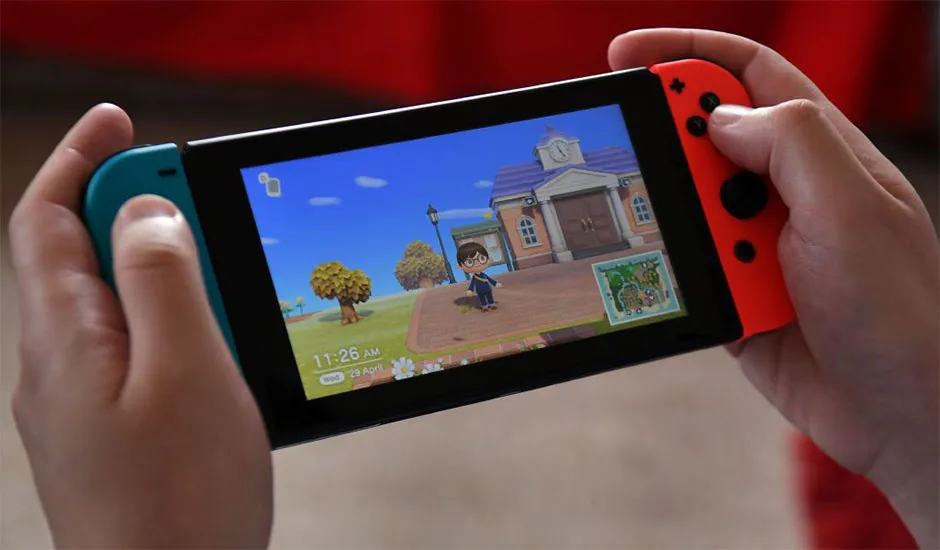As far as Nintendo games go, Animal Crossing isn’t perhaps as well-known outside of gamer circles as series such as Super Mario, Pokémon or The Legend of Zelda. And yet the latest instalment, New Horizons, has become something of a phenomenon in this worrying new world we find ourselves in.
If you haven’t already come across it, New Horizons is a life simulation game, a more easy-going counterpart to earlier titles like The Sims. You start off by purchasing a getaway package to a deserted island, armed only with a tent and a few basic tools to tend to the land.
Although there’s a basic storyline to follow, what you do in your newfound escape is up to you; among other things, you can go bug-hunting, try to fish up rare and fascinating fish, excavate for fossils, design your home, create elaborate gardens, invite friends over for a catch-up, or sit and stare at the night sky, waiting for a shooting star to pass you by.
There’s no endgame, no final boss: this is your own little world, to do with as you please.
Read more about video games:
- The benefits of video games: why screen time isn't always bad
- World Of Warcraft and similar online games can offer a lifeline to disabled people
In part, this is why New Horizons has been such a runaway success. Launched towards the end of March, it came out at a time when we were all finding ourselves confined to our homes, unable to visit our friends and loved ones, and generally feeling as though we were losing control of our day-to-day lives.
Along came New Horizons, and offered sanctuary: a literal faraway island where we could escape from our worries and impose a little order on some small aspect of our lives.

It sold five million digital copies in the first month after its release, more than any other video game in history. By early May, it had sold over 13 million copies worldwide – more than its predecessor, New Leaf, sold in six years.
It hasn’t just captured the imaginations of kids and teens either – according to Nintendo, one of the main player demographics is people in their 20s and 30s, looking for a nostalgia hit by playing the latest iteration of a game they first encountered in their youth.
And by the company’s estimates, some 40 per cent of sales to date have been to female players.
Self-Determination Theory
It’s not just about timing and escapism though - New Horizons hits some basic psychological buttons too. One of the most influential theories about human motivation is known as Self-Determination Theory.
First developed in the 1980s by psychologists Edward Deci and Richard Ryan, Self-Determination Theory suggests that while some behaviours are driven by external motivation (say, to gain a reward such as money or praise), others are shaped by more intrinsic forms of motivation – that is, we do some things simply because we enjoy them.
Intrinsic motivation is built on the foundations of three basic human needs: autonomy, competence and relatedness.
Autonomy relates to the need to experience freedom and choice in the activity you’re engaging in, and competence refers to the need to be good at activities, and exert control over them. Relatedness, unsurprisingly, refers to our need to be connected with other people.
Central to Self-Determination Theory is the idea that intrinsic motivation is a fundamental underlying factor for most forms of play – video games included. Since the early 2000s, a wealth of research has shown that video games which satisfy these three basic needs also tend to be the ones that the most successful.
If it’s an intuitive game that’s easy to pick up and master, one which gives you freedom to do as you please, and allows you to interact with and connect with other players in a meaningful way, then chances are that it’s going to be very popular.
Animal Crossing: New Horizons, while not perfect (no game ever is), ticks all of those boxes.
Read more fromReality Check:
- Coronavirus: Should we all wear face masks?
- Coronavirus: Is lockdown an opportunity for scientific research?
It’s a simple game that doesn’t require a steep learning curve. Moreover, the open-ended nature of the way that it plays out means that most activities you choose to do in the game you do so for the intrinsic value of doing something relaxing, positive or constructive.
You don’t need to worry about more extrinsic rewards like ‘levelling up’ in New Horizons; if you don’t want to spend your time fishing, for example, it won’t negatively impact your gaming experience.
And with the ability to invite friends to your island, or visit other people’s creations, it offers us a way to stay connected when other methods aren’t presently available to us.
So, why is Animal Crossing so popular right now? There’s no special secret. It all just boils down to the fact that it’s a carefully crafted game, designed to be a soothing, social and imaginative experience, which happened to come along just at the point we needed it the most.
Visit the BBC's Reality Check website at bit.ly/reality_check_ or follow them on Twitter@BBCRealityCheck
